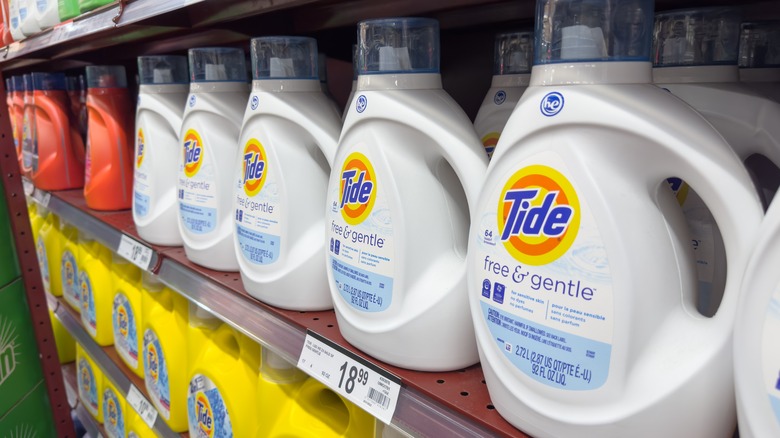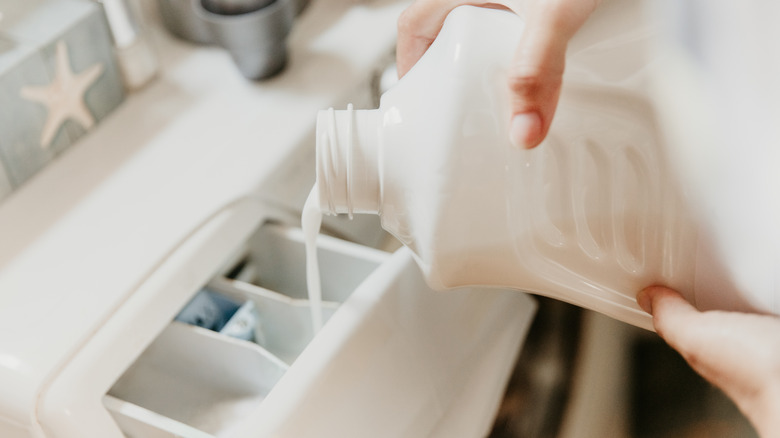Is The Cleaning Power Of Gentle Laundry Detergents As Strong As You Think?
We may receive a commission on purchases made from links.
There are a ton of laundry detergents labeled "gentle," "free," "clear," and other similar terms. But aside from the packaging, what makes these detergents different? In short: they skip out on certain ingredients that are common in traditional detergents, which also means they often don't clean as well as you might expect.
Laundry detergents are typically made with surfactants and enzymes to lift stains, as well as a range of other ingredients, including fragrances, dyes, optical brighteners, and preservatives. These ingredients can cause skin irritation or trigger allergic reactions in some people. Certain ingredients and byproducts, such as phthalates and 1,4-dioxane, have been linked to health concerns, while others (like phosphates) can be damaging to the environment.
Gentle detergents are more likely to be free of potentially risky ingredients. But labels like "gentle" or "sensitive" aren't standardized, and allergens vary from person to person, so they might still contain irritants. It can be overwhelming to sift through ingredient lists yourself. If you're looking for a gentle detergent, start by looking for relevant certifications on the label, such as the Environmental Protection Agency's Safer Choice. To earn this certification, products must undergo strict ingredient reviews to ensure human and environmental health.
If your priority is tackling stains and odors in the wash, a gentle detergent may not be the best way to go. Gentle detergents are often less effective because they lack the harsher chemicals that remove tough stains. But sometimes, that's a trade-off that you have to make.
How to make a gentle detergent work for you
Most people have a good reason to consider switching from a traditional laundry detergent to a gentler version. Perhaps you suspect a skin allergy, have baby laundry, or just prefer to play it safe and avoid potentially harmful chemicals. But you may have to strike a balance between cleaning power and gentleness based on your own comfort level. Some hypoallergenic detergents, such as Tide Free & Gentle, are effective cleaners and free of dyes, fragrances, and phosphate. But the more "free" a product is, like the four-ingredient Molly's Suds, the more likely that it will have a hard time battling stains and smells. If your laundry is typically lightly soiled, you may have no problems with a product like this. House Digest also previously tried Tru Earth Laundry Strips with good stain-lifting results.
It's worth noting that there are other options to try before making the switch to gentle detergent. For skin issues, consider simply cutting back on laundry detergent. One to two tablespoons is enough, but most people use a lot more. Put your laundry through an extra rinse cycle to remove residue. For baby laundry, many people combine it with regular laundry with no negative effects; there's no need to buy special detergent unless the baby shows signs of skin irritation. Another potential compromise is to use a gentle detergent for regular washes while pre-treating stains with separate products that don't irritate your skin. Many home ingredients like baking soda, vinegar, and hydrogen peroxide can work on laundry stains depending on the type.

